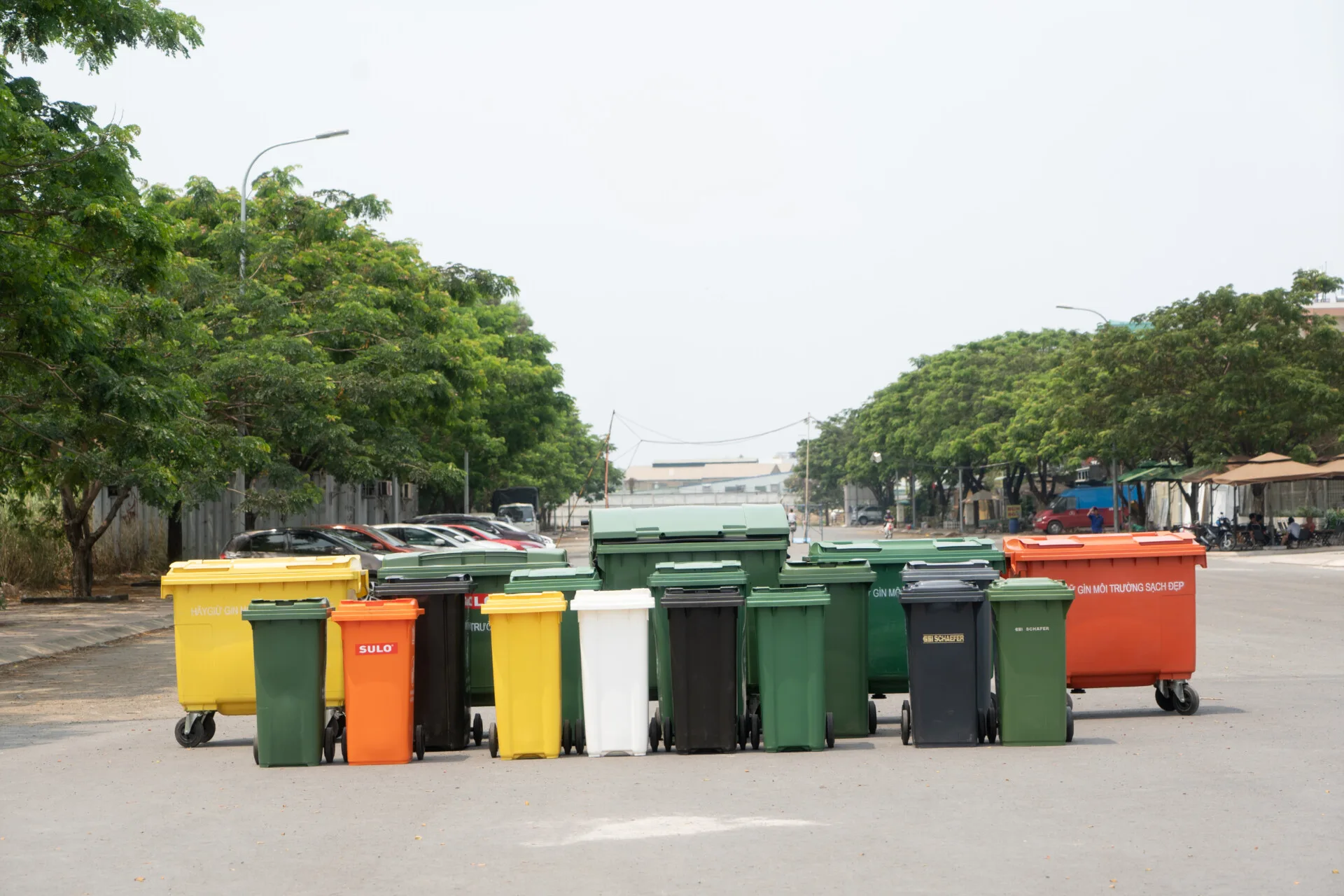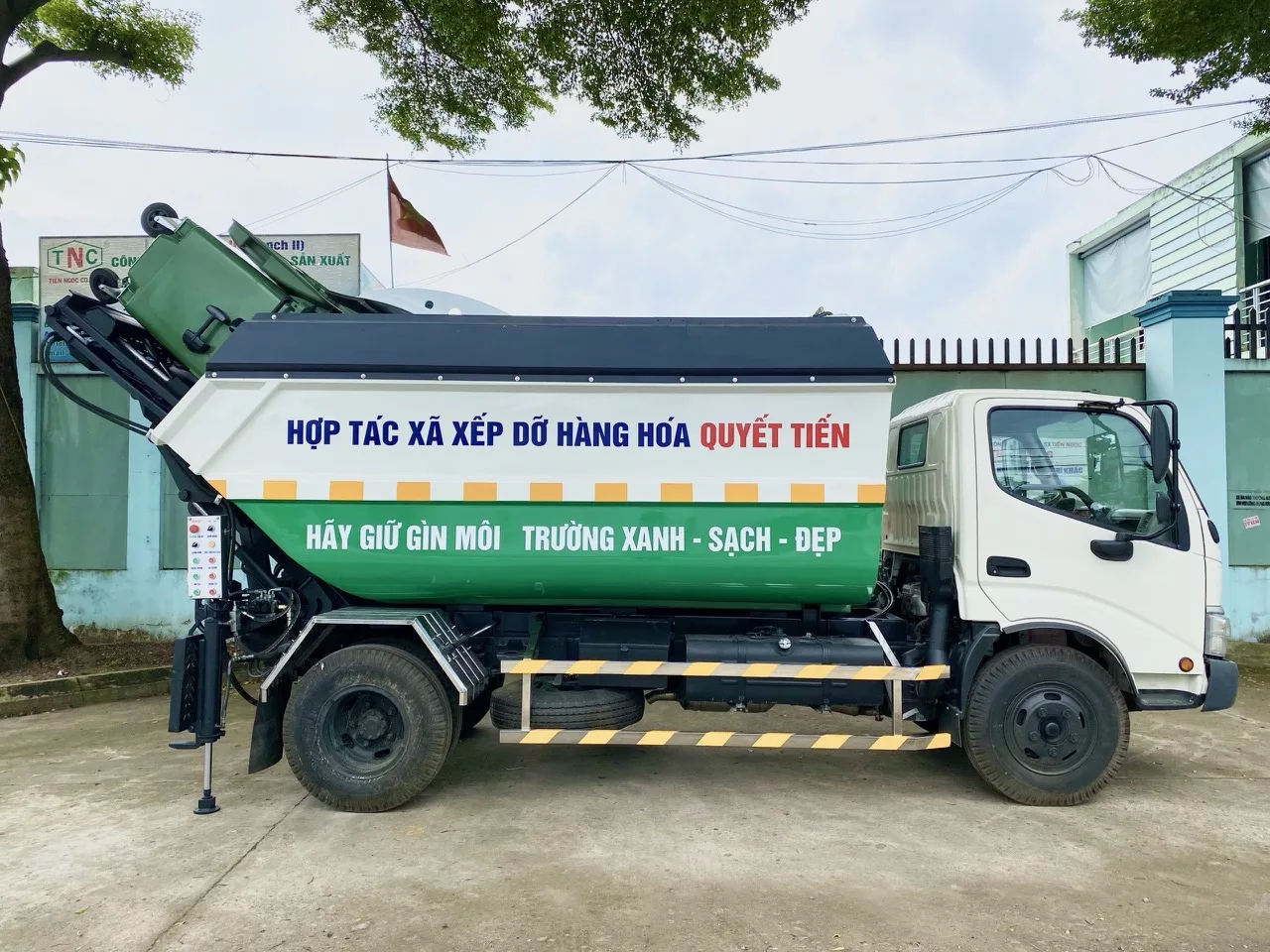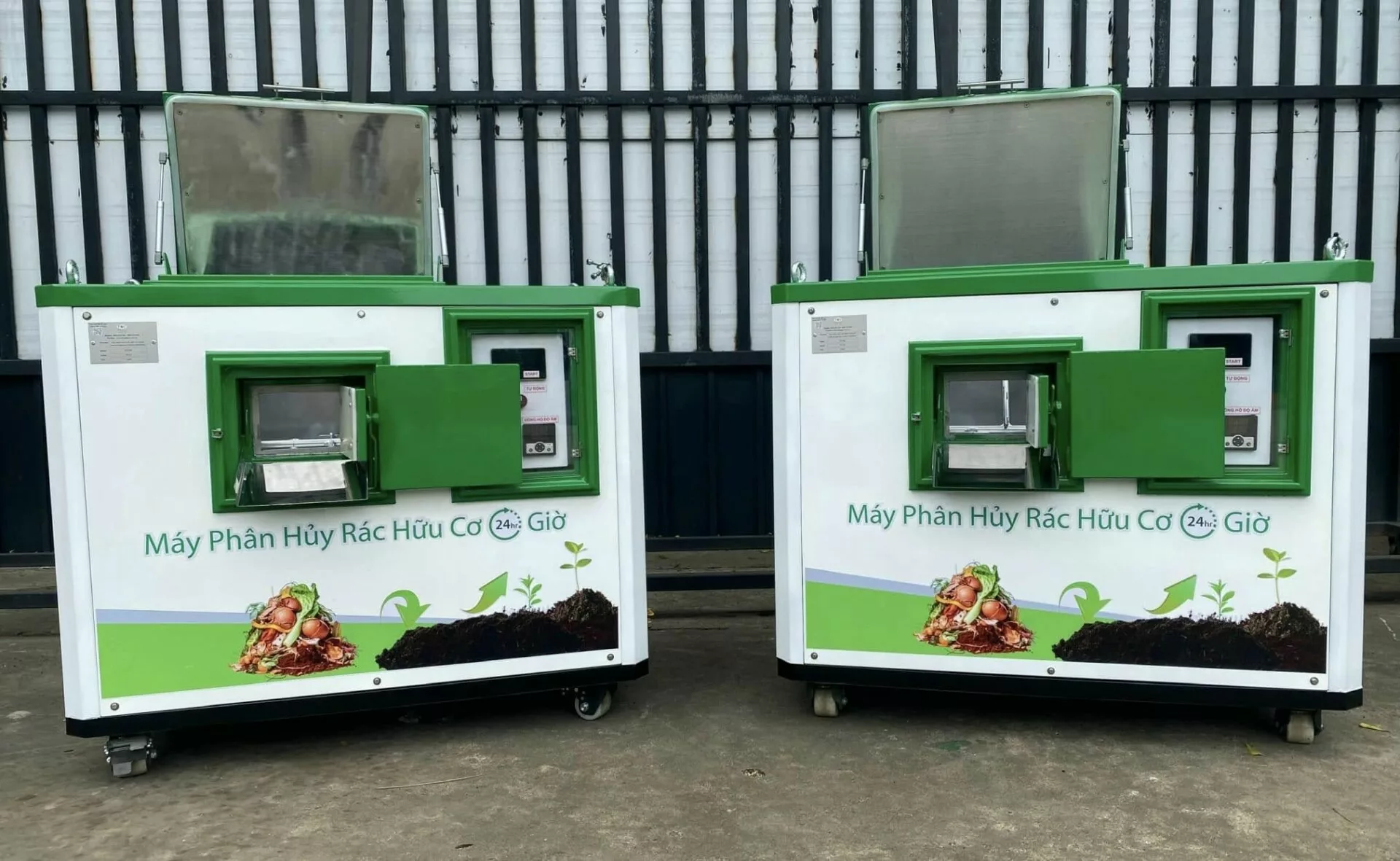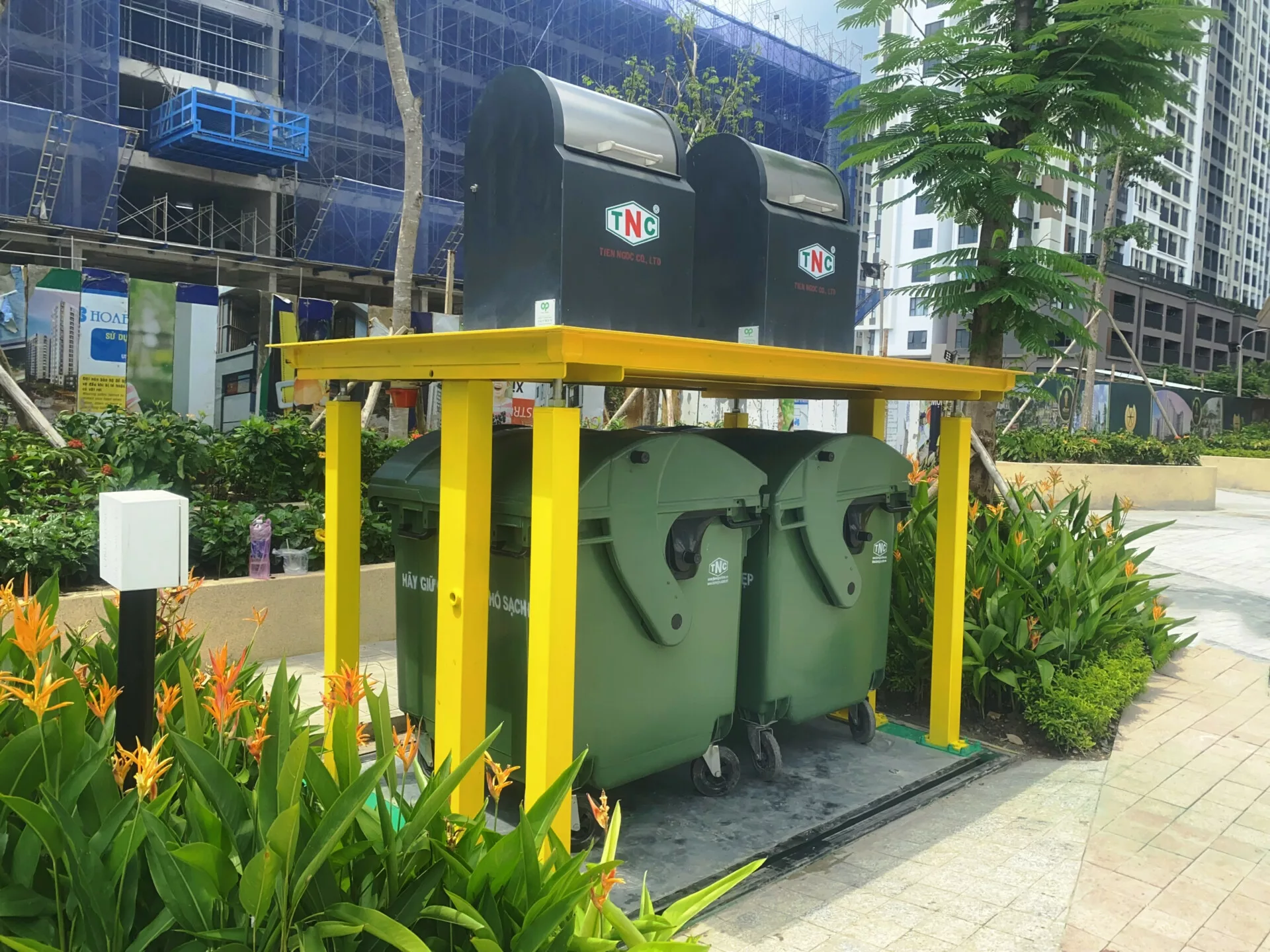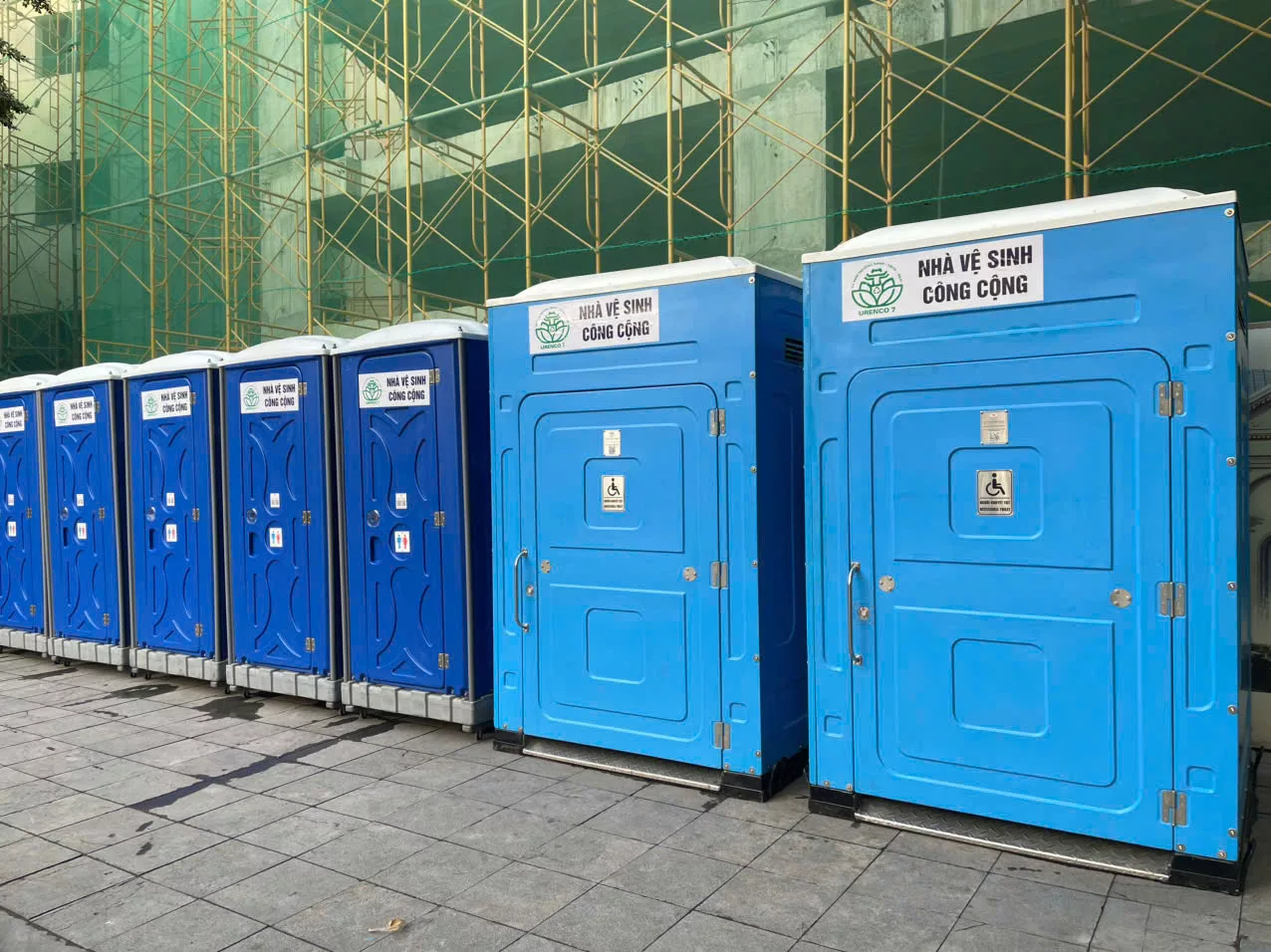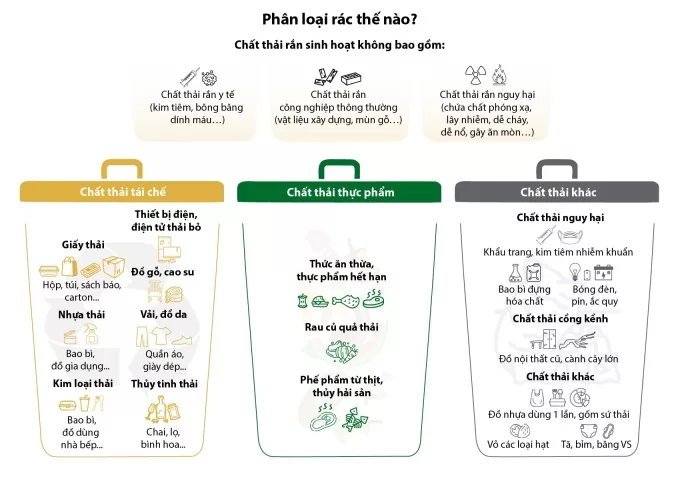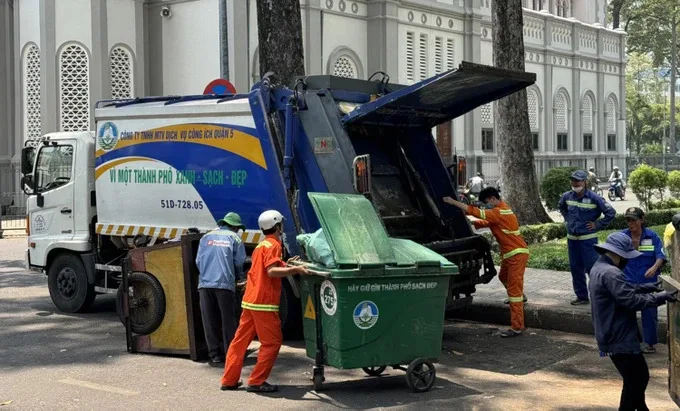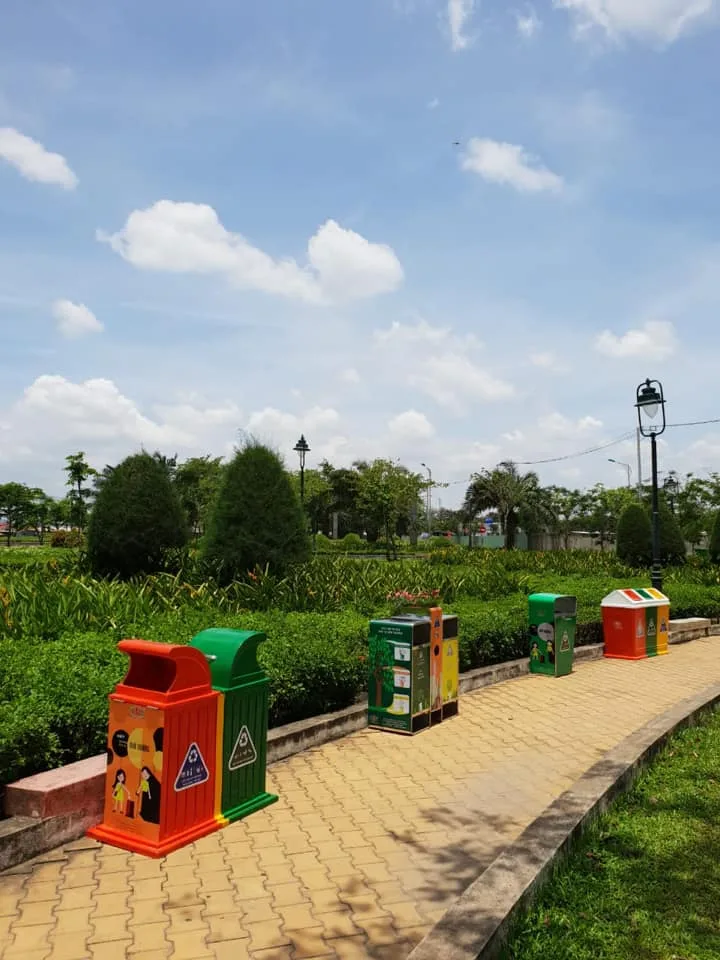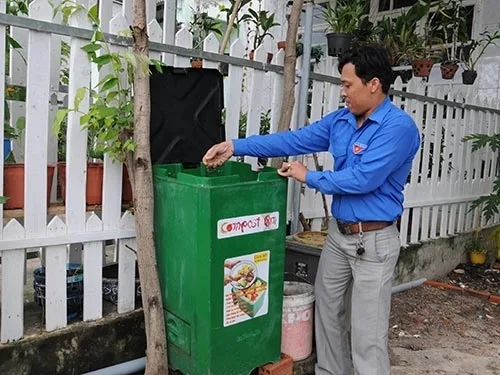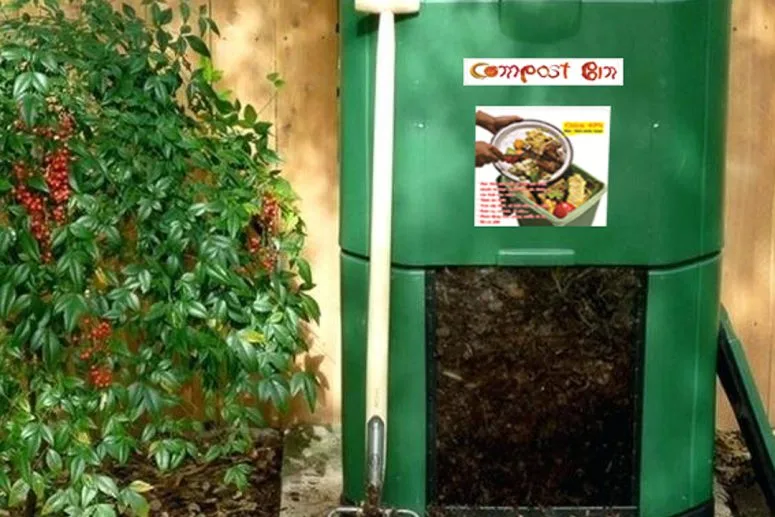Currently, people in Nhon Trach district, Dong Nai province are using the compost bin to replace the regular trash bin. The authorities hope that from here, the model of separating organic and inorganic waste will be expanded right at home. When organic waste is put into the compost bin with a simple process, it will decompose into compost fertilizer, which is both environmentally friendly and convenient, minimizing the need to take out the trash daily.
Ms. Le Thi Thuong (Hamlet 4, Long Tho Commune, Nhon Trach District, Dong Nai) said that the first habit of practicing when using a compost bin is to separate organic and inorganic waste at home. Organic waste must be kept separate until it is put into the compost bin; as for inorganic waste, it depends on how it is used, such as reusing it or selling it as scrap metal…. This habit needs to be practiced by all family members, only then can this type of bin be used effectively. After 4 months of use, Ms. Thuong’s compost bin is still not full and the bottom of this bin only produces a little compost.
It is known that after putting organic waste into the compost bin, within 8 to 10 weeks, the waste will decompose into water vapor and CO2 gas, and only about 10% of the remaining mass will form compost.
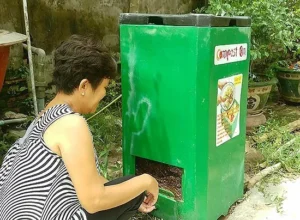
Ms. Nguyen Thi Hong checks the process of decomposing organic waste into compost after a period of using the compost bin.
The above compost bins were distributed to each family by Tien Ngoc Company (District 12, Ho Chi Minh City) in collaboration with some communes of Nhon Trach district after a training session on their use. This type of compost bin can withstand 600C, is designed to be insulated and sealed, and creates an even temperature, helping the decomposition process to be faster. The compost bin is also made up of compartments that contain leachate (water) to avoid pollution; this water, diluted with the formula “1 leachate + 10 water”, will create a liquid fertilizer rich in nutrients when water for plants.
Mr. Tran Quoc Ninh (Ba Truong Hamlet, Phuoc An Commune, Nhon Trach District, Dong Nai) said that for a family of only 2 people like him, he doesn’t have to think about taking out the trash for a whole month when using a compost bin. Leftover food, fruit peels, shrimp heads, fish bones… – that is, organic waste – are all put in the compost bin to decompose into compost. He also grows a whole range of ornamental plants and uses this compost to fertilize the plants. That is a huge benefit for more than 4 months since Mr. Ninh has used a compost bin instead of the traditional way of throwing trash in plastic bags and waiting for people to collect it.
Like Mr. Ninh, the family of 5 of Mrs. Nguyen Thi Hong (Ba Truong hamlet, Phuoc An commune, Nhon Trach district, Dong Nai) has been using the compost bin for nearly 3 months and has now produced the first batches of compost to fertilize plants. “At first, it was a bit annoying to have to sort the trash in the kitchen, but then we got used to it and now we just separate organic and inorganic and just do it like that,” said Mrs. Hong. It is necessary to follow the correct procedure as instructed, which is extremely necessary when using a compost bin to avoid bad odors. Specifically: when there is organic waste in the compost bin, it is necessary to add some sawdust or dry leaves… to create an environment for microorganisms to grow and decompose organic matter better.
Up to now, Tien Ngoc Company’s compost bins have been piloted for waste classification at source in many localities. In Dong Nai alone, nearly 100 bins have been delivered to each household, and will soon be delivered to some districts of Long An and Khanh Hoa. According to the design, each compost bin can serve the on-site decomposition of organic waste for 3 to 4 families, helping to save a lot of budgets compared to the traditional method of garbage collection, which has to bear various fees such as transportation fees, landfill fees, etc.
With such benefits, it is necessary to put compost bins into use at places with a lot of organic waste such as communal kitchens, supermarkets, wholesale markets and even in neighborhoods… Tien Ngoc Company hopes that compost bins will be widely used in rural and suburban areas, where garbage collection is still limited.
Source: Ba Tan – Saigon Giai Phong Newspaper
